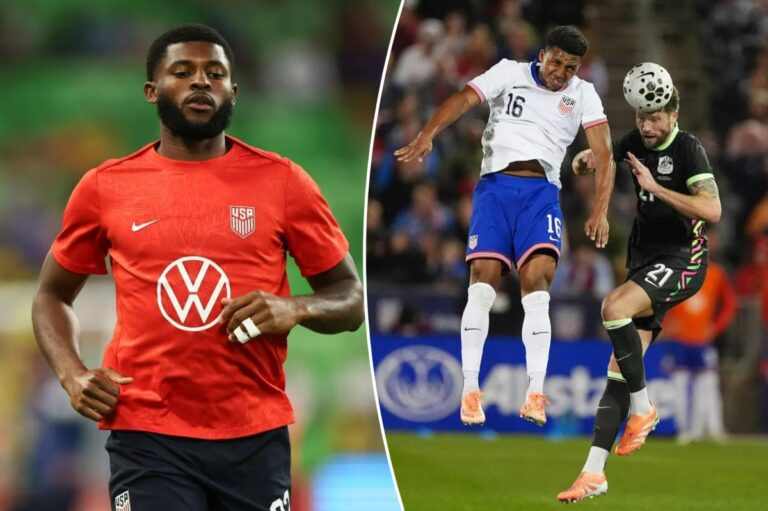Building Team Chemistry Ahead of the World Cup: The USMNT’s Challenge
Introduction
As the countdown to the World Cup on home soil begins, the U.S. Men’s National Team (USMNT) faces a unique challenge: building team chemistry with limited time together. With the tournament set to kick off on June 12 in Los Angeles, players are grappling with the urgency to refine their skills and foster unity.
The Importance of Team Chemistry
Mark McKenzie, a standout center back for the USMNT, highlights the significance of familiarity among teammates gained through practice. He notes that subtle adjustments, like knowing when a player prefers to turn left or right, can only be mastered through repetition. This deep understanding enhances performance on the field, making it crucial for a national team with a tight training schedule.
Key Factors in Team Dynamics
-
Repetition and Practice
- Developing instincts through frequent training sessions helps players understand each other’s playing styles.
- McKenzie emphasizes recognizing tendencies, such as comfort in aerial duels or aggression in midfield.
- Limited Training Span
- With only a handful of training sessions available before the World Cup, the urgency to improve becomes even more significant.
- In March, the team is expected to gather for friendlies against notable opponents like Portugal and Belgium, but key players, including Christian Pulisic and Weston McKennie, have been sidelined due to injuries, complicating the situation.
Upcoming Matches
The current international window features:
- A friendly against Paraguay on Saturday in Philadelphia
- A follow-up match against Uruguay in Tampa on Tuesday
These matches are critical for the squad to test their strategies and build connections on the field.
Strategies to Enhance Chemistry
McKenzie shared valuable insights into how the team can optimize their limited practice time:
- Intentional Training Sessions: Each gathering must focus on specific goals to hone skills and establish a game plan.
- Building Existing Bonds: The existing friendship among players can bridge gaps created by limited time. Many players, including McKenzie and Brendan Aaronson, share a background from local clubs.
The Culture Within the Team
Defender Alex Freeman sheds light on the team’s camaraderie. He believes that the collective mentality plays a significant role in their potential success at the World Cup. Describing the environment as egoless, Freeman attributes this culture to coach Mauricio Pochettino, who fosters teamwork and hard work.
Coach Pochettino’s Perspective
Pochettino remains optimistic about the team’s preparations. He insists the focus should not dwell on the limited time for training. Instead, the emphasis should be on maximizing each session available. He believes that the key to performance lies in their intelligence and commitment during training camps.
Conclusion
As the USMNT gears up for the World Cup, the mix of urgency and camaraderie among players will be crucial. By honing essential skills and nurturing team bonds, they can forge a path toward success on the world stage. Training sessions, friendly matches, and the commitment of each player will play a vital role in determining how far the U.S. can go in this prestigious tournament.
External Links for Further Reading
By embracing these challenges and focusing on building chemistry, the USMNT aims to make a lasting impression on their home turf when the World Cup arrives.


